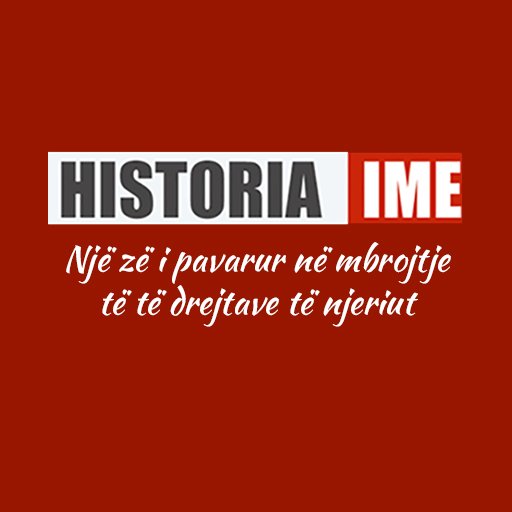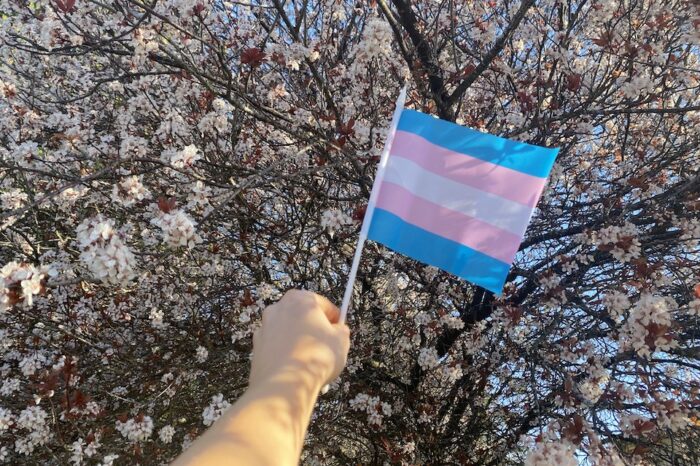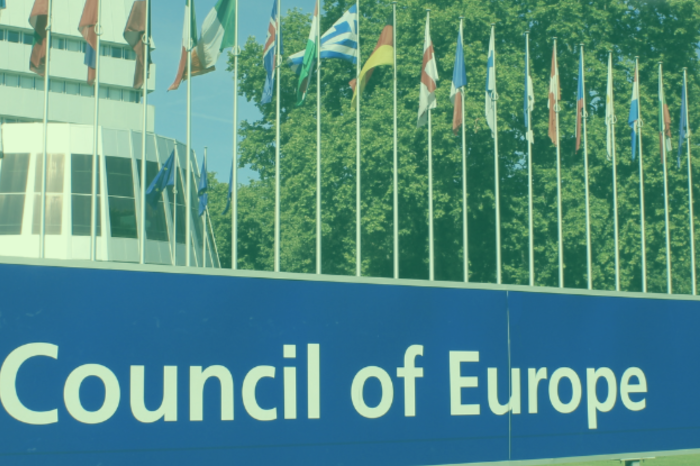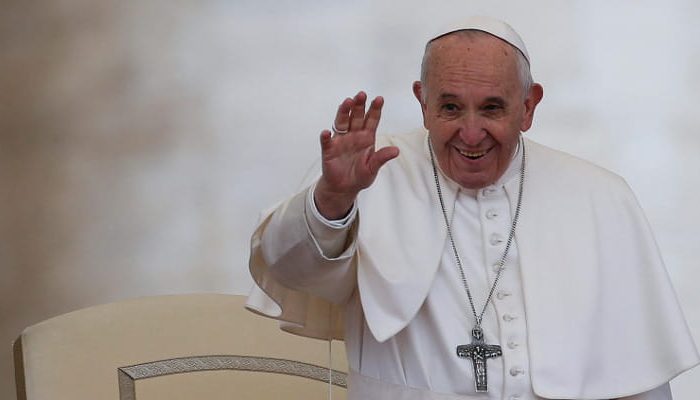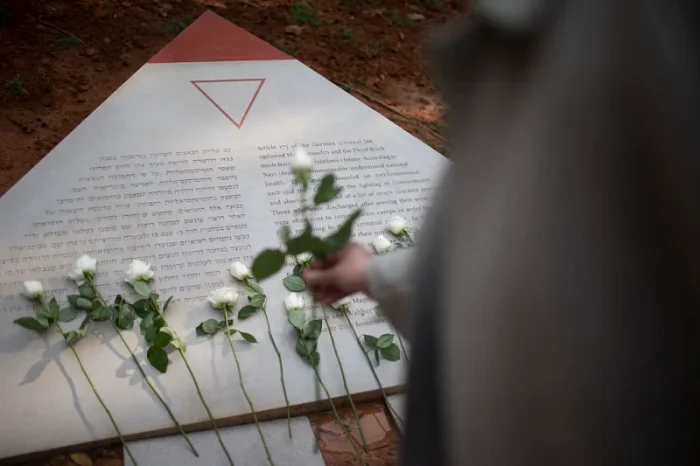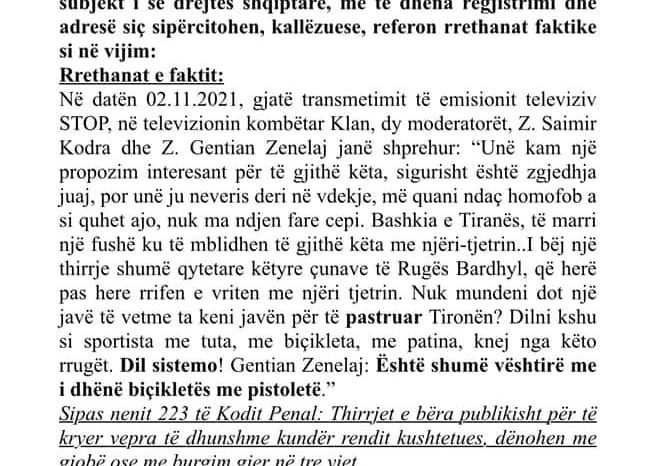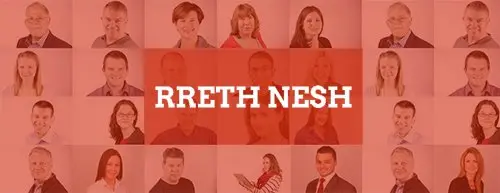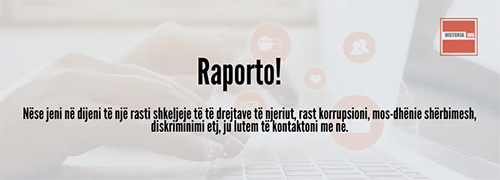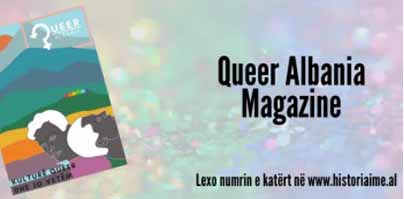Last Saturday, in Tirana, the closing activity of the project “To fight discrimination and protect the rights of the LGBTI community in Albania” was held.
This project, which was implemented with the support of the Dutch Ministry of Foreign Affairs, was a collaboration between COC Netherlands, the Helsinki Committee in the Netherlands, the Dutch State Police, VNG International, and LGBT Alliance and Pro LGBT from Albania.
The main focus of this project was to upgrade the capacity of the State Police institution regarding the management of cases of hate speech and discrimination against the LGBTI community. For the realization of this focus, several pieces of training were held with police officers and representatives of local institutions from the Municipalities which were part of this project, respectively the Municipality of Tirana, Lezha, and Vlora.
Consequently, during this project, the local level staff of the institutions and the State Police were strengthened for reporting, researching, registering, and prosecuting hate speech, hate crimes based on sexual orientation or gender identity.
This activity paved the way for the decentralization of institutional engagement and the establishment of cooperative relations between LGBTIQ + civil society organizations and local institutions in Albania.
This project, which started in October 2017, was concluded in Tirana with a conference attended by all actors and collaborators of the project who have been engaged during this period. The results, challenges, and successes of the project were discussed during the conference.
The conference started with some welcoming and inaugural speeches by the Ambassador of the Netherlands in Albania, Mr. Reinout Vos, Mayor of Tirana Mr. Erion Veliaj, President of the Council of Europe Mrs. Jutta Gützkow, People’s Advocate Mrs. Erinda Ballanca, and LGBTI rights activist Xheni Karaj.
Ambassador Vos expressed his satisfaction with this cooperation between the Dutch and Albanian semi-public institutions. He, among other things, emphasized that he highly appreciates the cooperation between state institutions and LGBTIQ + organizations in Albania. According to him, civil society actors need to engage in policy-making and the implementation of comprehensive policies.
The Mayor of Tirana, Mr. Veliaj, expressing the support of the institution he leads against the LGBTIQ + cause, mentioned the assistance that the same municipality has given to LGBTIQ + persons. He, among other things, said that the progress made so far should encourage us to continue working for the benefit of LGBTIQ + people and increase public and institutional support, especially in other municipalities.
The representative of the Council of Europe, Mrs. Jutta Gützkow said that the Council of Europe will always be ready to cooperate with civil society actors and institutions to implement the plan for a more European and democratic country.
The People’s Advocate, Mrs. Erinda Ballanca, said that support for LGBTIQ + people alone is not enough. She said that concrete actions and plans are needed to change the oppressive and discriminatory mentality.
Xheni Karaj, executive director of the LGBT Alliance, thanked all the actors involved in this project and invited state institutions to commit to respecting LGBTIQ + rights in the country. The activist said that the LGBTIQ + community continues to need support and commitment in the fight against oppression and discrimination and therefore the support of the Albanian state is very important for this fight.
The conference then continued with several discussion panels, where above all the outcome, challenges, and successes of the project were discussed.
The conference began with a presentation of the project and its goals and objectives by Marije Cornelissen. Afterward, a discussion panel was held on the topic “Working with the State Police and the justice sector.” In this discussion, it was discussed with Mr. Ilrjan Mandro for the inclusion of pieces of training on LGBTIQ + rights in the curriculum of the Faculty of Security and Investigation, with Mrs. Alma Katragjini for the training and the impact that this training has had on the State Police, with Erjon Alushani for the impact that the training has had on the municipal police with Erjon Alushani and Xheni Karaj for the experience of reporting to a trained police officer.
In the second panel, it was discussed about the experiences of the Municipalities during this project and the positive impact that this project has had on the civil servants of the Municipality. In this panel participated Mrs. Migena Kokeri from the Municipality of Tirana, Mrs. Fabiola Deliaj from the Municipality of Vlora, Mrs. Marta Prendi from the Municipality of Lezha, and Enriko Kapiti from the Albanian School of Public Administration.
The other panel focused on good practices of cooperation with institutions in the Western Balkan countries. In this panel, activists from Balkan countries told about their experiences of cooperation with local and central institutions to improve the position of LGBTIQ + persons in the respective countries.
The panelists of this discussion were: Mrs. Madalena Martinovic from the Municipality of Kotor in Montenegro, Danijel Kalezic from Queer Montenegro, Blert Morina from Kosovo, and Elena Petrovska from Northern Macedonia.
Regarding the good practices of inter-institutional cooperation and civil society, respectively in the Dutch municipalities, discussed Mrs. Dorrit de Jong, Deputy Mayor of Zwolle in the Netherlands, and Mr. Laurens Lubbers, a representative from the Municipality of Alkmaar.
The conference ended with a discussion on Agenda for the Future: How can the findings of this project be used in the implementation of the National Action Plan for LGTBIQ Persons during the years 2021-2027?!
Xheni Karaj, who spoke about the needs of the LGBTQIA + community, Fabiola Deliaj, who spoke about the next steps at the local level, Ilirjan Mandro, who spoke about the next steps to be taken at the State Police and the Faculty of Security, and Investigation and Denada Seferi, who spoke about the Plan and its goals.
In the framework of this project, a manual was realized on what exactly local institutions can do to improve the situation of LGBTIQ + persons at the local level.
This project was very successful and paved the way for institutional engagement and closer cooperation between civil society organizations and state bodies. / Agon Rexhepi
